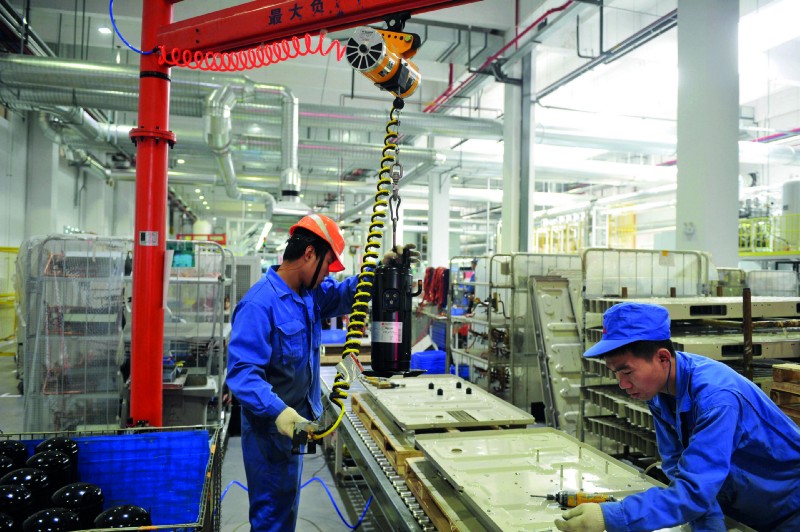A network comprised of the world’s best manufacturers will officially launch at the World Economic Forum’s 12th Annual Meeting of the New Champions in Tianjin, China on September September 18–20.
Concluding a year-long study with McKinsey, the World Economic Forum named the world’s nine most advanced factories earlier this month, a recognition of the strides that the winners have made towards embedding the technologies of the Fourth Industrial Revolution into modern production, improving financial and operational performance in the process.
Five of the winning factories are located in Europe, three in China and one in the U.S. They were selected from an initial list of some 1,000 manufacturing companies.
“ These pioneers have created factories that have 20%-50% higher performance” Enno de Boer, Partner and Global Head of Manufacturing at McKinsey & Company, said in a statement. “They have agile teams with domain, analytics, IoT and software development expertise that are rapidly innovating on the shop floor.”
The aim of the Forum is to build a network of these manufacturers to address problems confronting industries in both advanced and emerging economies face when they invest in advanced technologies.
Earlier work by the Forum found that over 70% of businesses investing in technologies such as Big Data analytics, artificial intelligence or 3D printing do not take the projects beyond the pilot phase due to unsuccessful implementation strategies. To aid the learning and adoption of technologies by other companies, all nine factory owners in the network have agreed to share their knowledge with other manufacturing businesses.
The nine winners are:
• Bayer Biopharmaceutical (Garbagnate, Italy): “‘Using data as an asset’asset”- While most companies use less than 1% of the data they generate, Bayer’s massive data lake (a storage repository that holds a vast amount of data) has led to a 25% reduction in maintenance costs and 30%-40% gains in operational efficiency.
• Bosch Automotive (Wuxi, China): “‘Optimizing competitiveness’ competitiveness” — By implementing an “order-to-make” product customization platform and using remote AI, the factory is able to predict maintenance needs before they occur.
• Haier (Qingdao, China): “‘Customer-centric technologies”’ — Artificial Intelligence- led transformations include an “‘order-to-make”’ product customization platform and the use of remote AI, helpings the factory to predict maintenance needs before they happen.
• Johnson & Johnson DePpuy Synthes (Cork, Ireland): “‘Process-driven digital twinning”’ — This factory used the Internet of Things to make old machines talk to one other, resulting in 10% lower operating costs and a 5% reduction in machine downtime.
• Phoenix Contact (Bad Pyrmont and Blomberg, Germany): “‘Customer-driven digital twinning”’ — By creating digital copies of each customer’s specifications, production time for repairs or replacements has been cut by 30%.
• Procter & Gamble (Rakona, Czech Republic): “‘Production agility”’ — A click of a button is all it takes for production lines in this factory to instantly change the product being manufactured, which has reduced costs by 20% and increased output by 160%.
• Schneider Electric (Vaudreuil, France): “‘Factory integration”’ — Sharing knowledge and best practices across sites has helped this company make sure all its factory sites have the highest energy and operational efficiencies, reducing energy costs by 10% and maintenance costs by 30%.
• Siemens Industrial Automation Products (Chengdu, China): “‘3D simulated production line optimization”’ — Using 3D simulation, augmented reality and other techniques to perfect the design and operations of its factory, employees helped increase output by 300% and reduced cycle time.
• UPS Fast Radius (Chicago, U.S.A): “‘Balancing capacity with customer demand”’ — Meeting increasing consumer demand for fast-turnaround customized products has been made possible through a combination of globally distributed 3D- printing centers with real-time manufacturing analytics.







